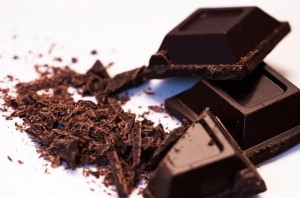Hypertension is one of the bigger health problems in the Philippines. According to the National Nutrition and Health Survey (NNHeS II) conducted in 2008, one in every four Filipino adults (25.7 percent) has hypertension—a blood pressure reading equal to or higher than 140/90 millimeter mercury (mmHg).
While it causes no symptoms, high blood pressure boosts the risks of leading killers such as heart attack and stroke, as well as aneurysms, cognitive decline, and kidney failure.
Medication can lower blood pressure, it may also cause side effects such as leg cramps, dizziness and insomnia. Fortunately, most people can bring down their blood pressure naturally without medication. But first, get to a healthy weight. And then try these strategies from prevention.com to reduce the risk of heart disease.
1. Go for power walks
Exercise helps the heart use oxygen more efficiently, so it doesn’t work as hard to pump blood. Get a vigorous cardio workout of at least 30 minutes on most days of the week. Try increasing speed or distance so you keep challenging your ticker.

Slow breathing and meditative practices such as yoga, and tai chi decrease stress hormones, which elevate renin, a kidney enzyme that raises blood pressure. Try 5 minutes in the morning and at night. Inhale deeply and expand your belly. Exhale and release all of your tension.
3. Pick potatoes
Loading up on potassium-rich fruits and vegetables is an important part of any blood pressure-lowering program. Aim for potassium levels of 2,000 to 4,000 mg a day, she says. Top sources of potassium-rich produce include sweet potatoes, tomatoes, orange juice, potatoes, bananas, kidney beans, peas, cantaloupe, honeydew melon and dried fruits such as prunes and raisins.
4. Be salt smart
Certain groups of people—the elderly and those with a family history of high blood pressure—are more likely than others to have blood pressure that’s particularly salt (or sodium) sensitive. But because there’s no way to tell whether any one individual is sodium sensitive, everyone should lower his sodium intake. How far? To 1,500 mg daily. (Half a teaspoon of salt contains about 1,200 mg of sodium.) Cutting sodium means more than going easy on the saltshaker. Watch for sodium in processed foods, too. Season foods with spices, herbs, lemon and salt-free seasoning blends.

Dark chocolate varieties contain flavanols that make blood vessels more elastic. Have 1/2 ounce daily (make sure it contains at least 70 percent cocoa).
6. Take a supplement
Researchers found that coenzyme Q10 reduced blood pressure by up to 17 mmhg over 10 mmhg. The antioxidant, required for energy production, dilates blood vessels. Ask your doctor about taking a 60 to 100 mg supplement up to 3 times a day.
7. Drink (a little) alcohol
According to a review of 15 studies, the less you drink, the lower your blood pressure will drop—to a point. A study of women at Boston’s Brigham and Women’s Hospital, for example, found that light drinking (defined as one-quarter to one-half a drink per day for a woman) may actually reduce blood pressure more than no drinks per day. One “drink” is 12 ounces of beer, 5 ounces of wine, or 1.5 ounces of spirits. Other studies have also found that moderate drinking–up to one drink a day for a woman, two for a man—can lower risks of heart disease.
8. Switch to decaf coffee
Scientists have long debated the effects of caffeine on blood pressure. Some studies have shown no effect, but one from Duke University Medical Center found that caffeine consumption of 500 mg—roughly three 8-ounce cups of coffee—increased blood pressure by 4 mmhg, and that effect lasted until bedtime. For reference, 8 ounces of drip coffee contain 100 to 125 mg; the same amount of tea, 50 mg; an equal quantity of cola, about 40 mg. Caffeine can raise blood pressure by tightening blood vessels and by magnifying the effects of stress. If you drink a lot of joe, pour more decaf to protect your ticker.
9. Take up tea
Lowering high blood pressure is as easy as one, two, tea: Study participants who sipped 3 cups of a hibiscus tea daily lowered systolic blood pressure by 7 points in 6 weeks on average, say researchers from Tufts University–results on par with many prescription medications. Those who received a placebo drink improved their reading by only 1 point. The phytochemicals in hibiscus are probably responsible for the large reduction in high blood pressure, say the study authors. Many herbal teas contain hibiscus; look for blends that list it near the top of the chart of ingredients—this often indicates a higher concentration per serving.
10. Work (a bit) less
Putting in more than 41 hours per week at the office raises your risk of hypertension by 15 percent, according to a University of California, Irvine, study of 24,205 California residents. Overtime makes it hard to exercise and eat healthy, says Haiou Yang, PhD, the lead researcher. It may be difficult to clock out super early, but try to leave at a decent hour–so you can go to the gym or cook a healthy meal–as often as possible. Set an end-of-day message on your computer as a reminder to turn it off and go home.
11. Relax with music
Need to bring down your blood pressure a bit more than medication or lifestyle changes can do alone? The right tunes can help, according to researchers at the University of Florence in Italy. They asked 28 adults who were already taking hypertension pills to listen to soothing classical, Celtic or Indian music for 30 minutes daily while breathing slowly. After a week, the listeners had lowered their average systolic reading by 3.2 points; a month later, readings were down 4.4 points.
Disclaimer: The comments uploaded on this site do not necessarily represent or reflect the views of management and owner of Cebudailynews. We reserve the right to exclude comments that we deem to be inconsistent with our editorial standards.

